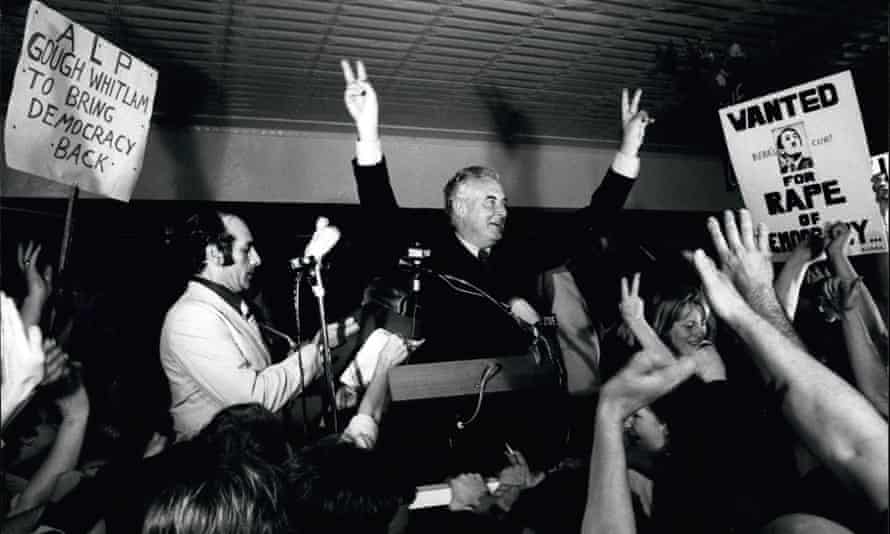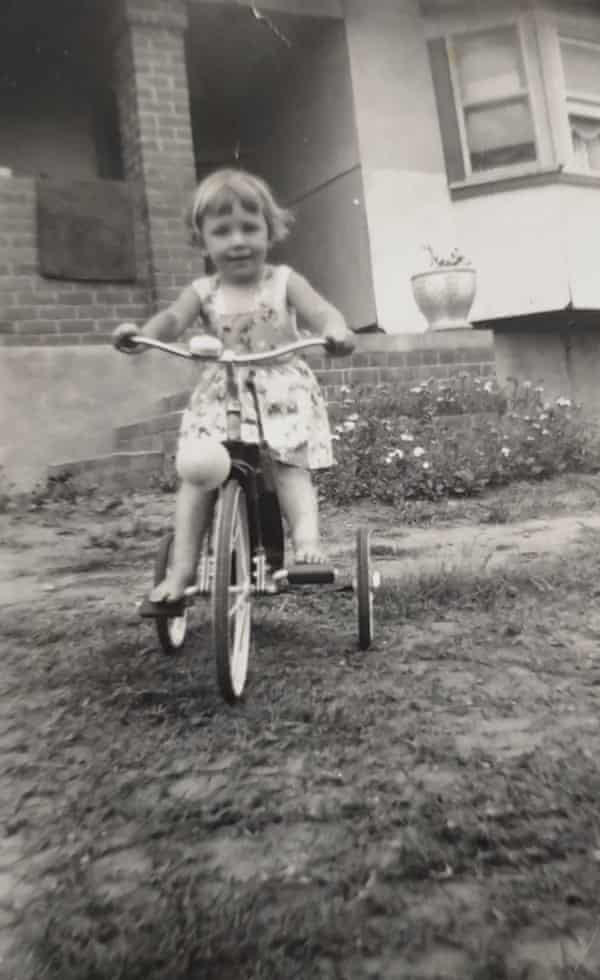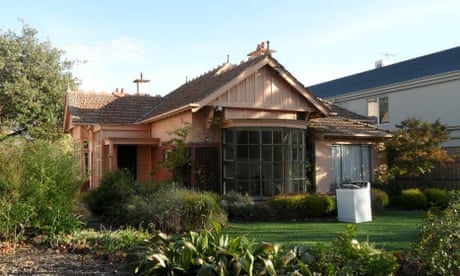Extract from The Guardian
The coming of Gough and Margaret made my life more complex and meaningful. I hope his vision of equality remains.

‘It was a time when everything seemed possible and most ideas for social reform resulted in services to the community. The world seemed to be my oyster,’ writes Christine Sykes.
The Whitlam family moved to the other end of Albert Street into a four-bedroom brick modernist house with a flat roof. It was spacious and iconic.
My life was transformed.
The Whitlams came from another world. Gough and Margaret were tall, university-educated and spoke with a BBC accent. My parents hadn’t been to high school.
The first time I met Whitlam, at his front door, he was wearing a plush tartan dressing gown. Dad’s tartan dressing gown was scratchy and darned at the elbows.

Writer Christine Sykes on her tricycle outside her family home in Cabramatta. Photograph: Christine Sykes
The stature of the Whitlams and their involvement in our ethnically diverse community meant that they were highly visible. We would see them at the local school and shops. Margaret helped get a swimming pool – a necessity in the hot Cabramatta summers – where I swam laps while she paced along the edge.
On the national stage, Whitlam fought for the provision of sewerage. At the time, almost half of Australians lived in homes not connected to a sewerage system, and most of them were in the outer suburbs like the one we lived in.
The coming of sewerage to Albert St had an educational benefit for me. Dad closed in part of our back veranda for the indoor toilet. Around the same time, I visited the Whitlam house and saw Gough’s new study, which was in a vacant bedroom after his older sons left home. When I told Dad, he built me a study next to the indoor toilet modelled on Gough’s one. Having a room of my own enabled me to stay in the top classes at school.
While in opposition, he championed the need for a scholarship to keep poorer children at high school, beyond the leaving age of 15.
I was one of the first students to win a senior secondary scholarship he had championed. Two years later I became the first person in my family to go to university.
After university, I travelled to Adelaide where I achieved my dream of teaching. However, my struggles with identity and anxiety, which I’d faced since pre-puberty, re-emerged and I ended up in Glenside Mental Hospital. At the end of the year I gave up teaching to travel around Australia.
When Whitlam was elected prime minister in December 1972, Albert Street was buzzing. After giving a press conference in his backyard, Whitlam walked up the street, inviting the neighbours to his house to celebrate. While overjoyed at the win, Dad declined the offer. He was going fishing early the next day.
Whitlam wasted no time implementing reforms. By that time, I was a mother living on a rented farm at the back of Liverpool. I had no job and limited prospects.
Whitlam’s reforms directly benefited me and my family.
Through programs funded by the Whitlam government, I helped organise the first International Women’s Day forum in Liverpool, became involved with Bonnie Women’s Refuge and worked in community development at Fairfield Video Access centre. My view of myself changed from being a failure to being an experienced, university-educated mother who was proud to be able to contribute to her community.
It was a time when everything seemed possible and most ideas for social reform resulted in services to the community. The world seemed to be my oyster.
The dismissal of Whitlam and his twice elected government in November 1975 appalled and angered me. I attended rallies, to no avail, and feared that the end of the Whitlam government was the end of social reform.
While many reforms of the Whitlam government have been wound back or diluted, I believe the foundations for Gough Whitlam’s vision of equality remains with me, and I hope in Australia.
On the 55th anniversary of the People’s Republic of China, in 2004, I celebrated my 55th birthday at the Australian embassy in Beijing, which had been established by Whitlam. Nibbling on a mini-quiche, I reflected how far the mud-pie eating kid from Cabramatta had come and the massive impact Gough Whitlam had on my life and generations of other Australians.
The coming of Gough and Margaret made my life more complex and meaningful. I achieved my own dreams in no small part because of our new neighbours, who changed my street and reformed our country.

No comments:
Post a Comment